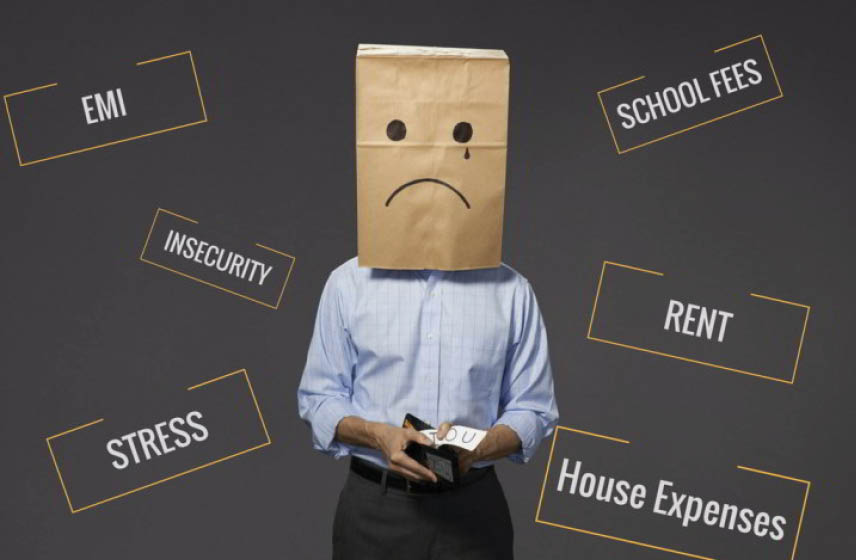Er. Dinshah Aspi Anklesvaria is a practicing priest and a Human Resources professional, working with the house of Tatas. He commands over thirteen years of experience in the hospitality and culinary sector in various capacities and expertise in the areas of Human Resources and Training.
The Pandemic’s Side Effects: The world over, the COVID-19 pandemic has claimed the lives of lakhs, while adversely affecting the health of millions and impacting the lives of billions! A massive global unemployment crisis has arisen as economies across the world experience recession-like symptoms. As a result, millions of people have either lost their jobs or are in danger of losing them. Combining these threats of unemployment with the comprehensive scale of illnesses and loss of lives, the side effects can include intense levels of grief, anxiety and trauma.
A Crisis Within A Crisis: Hopes are high for a vaccine that will return society to some semblance of normalcy. However, even after neutralizing the threat of the virus, the likelihood of a recession remains high. As businesses continue to navigate a tanking economy and job losses accumulate at a staggering rate, a quick economic rebound is unlikely. Companies’ cash-saving measures to help weather this storm may unfortunately include any one or a combination of pay cuts, reduced hours, furloughs, early retirements and outright layoffs.
Job loss is one of life’s most stressful experiences. For many, losing a job not only means loss of income and essential non-monetary benefits, but also loss of one’s identity. Besides the financial aspects, our jobs influence both – how we see ourselves as well as the way others see us. Our careers provide us a greater sense of self-esteem, advocacy and purpose. Job loss, or the threat to one’s job security, can therefore be an extremely traumatic experience, often leading to anxiety, frustration, panic attacks, sudden loss of or increase in appetite, insomnia, depression, mood swings, delusions, fear, and in some cases, suicidal tendencies as for many, it could feel like the end of the world.
Your Career Is NOT Your Identity. It is perfectly normal for a person to grieve the loss of a job. However, it is important to remember, that a career is not one’s identity. Separating one’s self-worth from their job is especially important in times like these. It is crucial for people, who have either lost or are in danger of losing their jobs during this pandemic, to find a way to balance acknowledging their anxieties. Irrespective of how overwhelming the stress of job loss can be, there are many things that one can do to take control of the situation, maintain spirit and find a renewed sense of purpose.
These Seven tips will help cope up with job loss anxiety during the pandemic
(I) Accept Reality For The Present, But Not The Future: While we must accept the current situation, let’s remind ourselves that this period of unemployment is not going to define the rest of our lives. This layoff or threat to your career is not about you or your skills; it’s about the larger economy. This is a temporary situation, so understand that life will be different for a while, but it won’t be this way forever.
(II) Focus On What You Can Control: The pandemic and any resulting threat(s) to employment are out of your control, so do not waste time and energy fretting over it. While you may not have any influence on the job market, you can control how you react and manage your emotions. If finances are your biggest worry, prepare for a decrease in disposable income by realistically and practically considering areas in your spending habits where you can cut back.
(III) Exercise, Meditate, Pray: Exercise improves your physical and emotional health. It releases endorphins that trigger positive feelings, something that can fuel the drive and motivation, working wonders for your mental fitness. Prayers and meditation help you calm and clear your mind, and decrease your anxieties and helps you ponder new ideas to constructively deal with your present situation.
(IV) Maintain A Healthy Diet: It’s easy to slip into a sedentary lifestyle and make poor dietary choices because of stress or boredom, especially while coping with job loss/threat. Your diet may seem like your last priority when you’re financially stressed. Remember – what you put in your body has a huge effect on your levels of energy and positivity. Reduce intake of foods that adversely affect mood (e.g. caffeine). Limit or, even better, reduce/avoid nicotine and alcohol intake. Smoking may provide temporary relief, but nicotine is a powerful stimulant that actually increases levels of stress and anxiety. As is the case with alcohol, where it could cause even greater anxiety as its effects wear off.
(V) Keep Your CV And Your Network Up-to-Date: The pandemic may have caused an economic downturn, but ensure to be prepared for the inevitable uptick. Keep your skills and experiences captured in your CV so that when the job markets open up, you are ready. Reach out to people you know and enlist their support in making any introductions or connections that could help. The adage, ‘your network is your net worth’, is particularly relevant when it comes to finding jobs that are filled through connections made via word of mouth. Never underestimate the power of your network to open opportunities and land you that ‘lucky break’ you were hoping for!
(VI) Maintain Balance In Your Life: Don’t let your job search consume you. Make time for family and friends, and take it as the most needed break that you have been long craving. Enjoy each other’s company, let off steam, and make a conscious effort to forget about your (un)employment troubles. Make time for fun, rest and relaxation… whatever revitalizes you! Your job search will be more effective if you’re mentally, emotionally and physically at your best, and will help your larger social circle stay positive.

(VII) Don’t Be Afraid To Seek Help: It is natural to feel anxiety, but gone unchecked and chronic, it could lead to negative consequences on your physical and emotional health. This is a global pandemic and the likelihood of others understanding your feelings is high. So, don’t be afraid to seek help if you need it. Remember You Are Not Alone!
